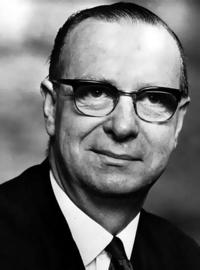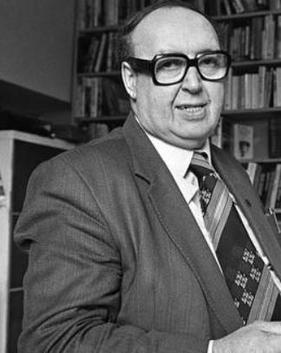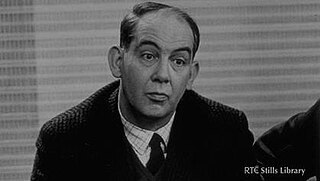
John Hume was an Irish nationalist politician in Northern Ireland and a Nobel Peace Prize laureate. A founder and leader of the Social Democratic and Labour Party, Hume served in the Northern Ireland Parliament; the Northern Ireland Assembly including, in 1974, its first power-sharing executive; the European Parliament and the United Kingdom Parliament. Seeking an accommodation between Irish nationalism and Ulster unionism, and soliciting American support, he was both critical of British government policy in Northern Ireland and opposed to the republican embrace of "armed struggle". In their 1998 citation, the Norwegian Nobel Committee recognised Hume as an architect of the Good Friday Agreement. For himself, Hume wished to be remembered as having been, in his earlier years, a pioneer of the credit union movement.
The Social Democratic and Labour Party is a social-democratic and Irish nationalist political party in Northern Ireland. The SDLP currently has seven members in the Northern Ireland Assembly (MLAs) and two members of Parliament (MPs) in the House of Commons of the United Kingdom.

Gerard Fitt, Baron Fitt was a politician from Northern Ireland. He was a founder and the first leader of the Social Democratic and Labour Party (SDLP), a social democratic and Irish nationalist party.
The Sunningdale Agreement was an attempt to establish a power-sharing Northern Ireland Executive and a cross-border Council of Ireland. The agreement was signed by the British and Irish governments at Northcote House in Sunningdale Park, located in Sunningdale, Berkshire, on 9 December 1973. Unionist opposition, violence and a general strike caused the collapse of the agreement in May 1974.

The Northern Ireland border poll was a referendum held in Northern Ireland on 8 March 1973 on whether Northern Ireland should remain part of the United Kingdom or join with the Republic of Ireland to form a united Ireland. It was the first time that a major referendum had been held in any region of the United Kingdom. The referendum was boycotted by nationalists and resulted in a conclusive victory for remaining in the UK. On a voter turnout of 58.7 percent, 98.9 percent voted to remain in the United Kingdom, meaning the outcome would not have been impacted without the boycott.

Roy Mason, Baron Mason of Barnsley,, was a British Labour Party politician and Cabinet minister who was Secretary of State for Defence and Secretary of State for Northern Ireland in the 1970s.

Belfast West is a parliamentary constituency (seat) in the House of Commons of the UK Parliament. The current MP is Paul Maskey of Sinn Fein.
The Northern Ireland Labour Party (NILP) was a political party in Northern Ireland which operated from 1924 until 1987.
Harry Diamond (1908–1996) was a socialist and an Irish nationalist. He was the MP for Belfast Falls in the Parliament of Northern Ireland, and later the leader of the Republican Labour Party.

Patrick Joseph "Paddy" Devlin was an Irish socialist, labour and civil rights activist and writer. He was a founding member of the Social Democratic and Labour Party (SDLP), a former Stormont MP, and a member of the 1974 Power Sharing Executive.
Ivan Averill Cooper was a nationalist politician from Northern Ireland. He was a member of the Parliament of Northern Ireland and a founding member of the Social Democratic and Labour Party (SDLP). He is best known for leading the civil rights march on 30 January 1972 that developed into the Bloody Sunday massacre.
Patrick Kennedy was a Northern Irish politician.
Francis "Frank" Hanna, was an Irish politician.

Major Ronald Terence Bunting was a British Army officer and unionist political figure in Northern Ireland.
Fergus O'Hare is an Irish musician, activist and former republican politician, active in Northern Ireland.
Murtagh Morgan was a trade unionist and Irish republican politician.
Billy Spence was a loyalist activist in Northern Ireland. A native of the Shankill Road area of Belfast, Spence was a leading figure with both Ulster Protestant Action and the Ulster Volunteer Force.
Robert Martin McBirney QC, known as Martin McBirney, was a magistrate and politician from Northern Ireland who was assassinated.

The February 1974 United Kingdom general election in Northern Ireland was held on 28 February with 12 MPs elected in single-seat constituencies using first-past-the-post as part of the wider general election in the United Kingdom.







